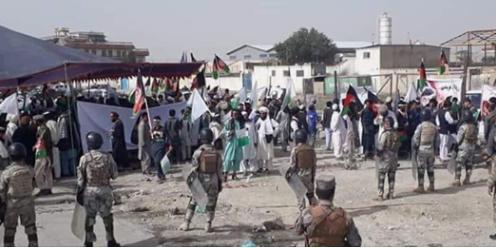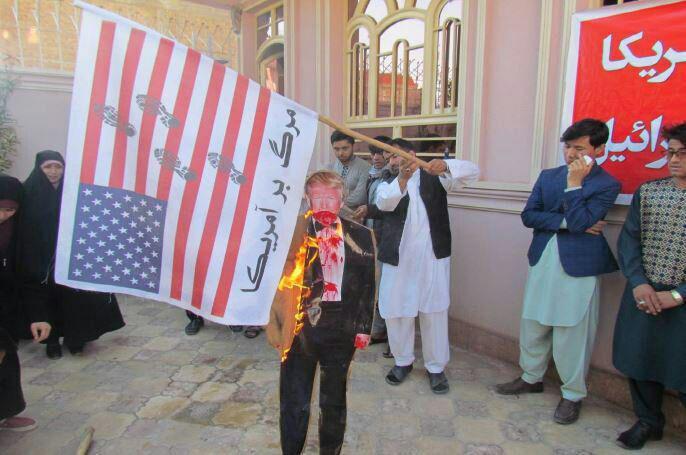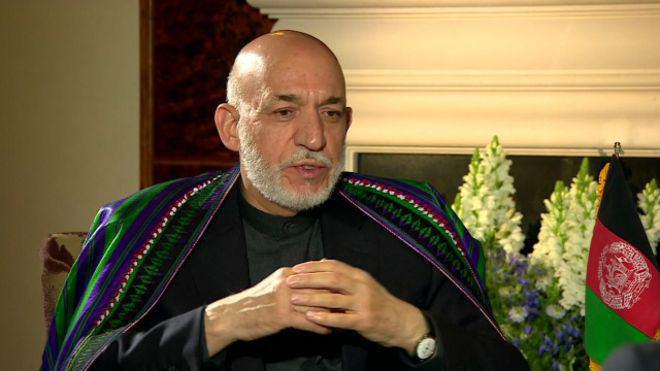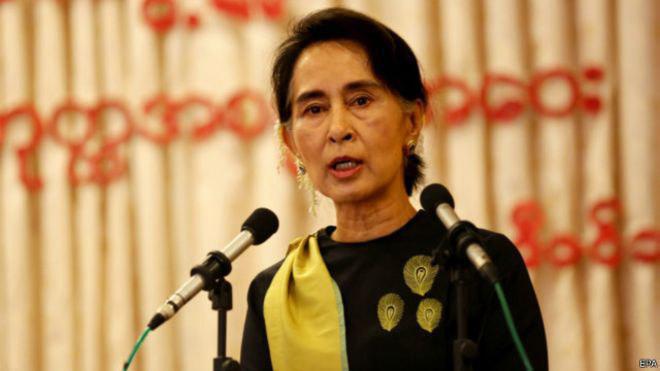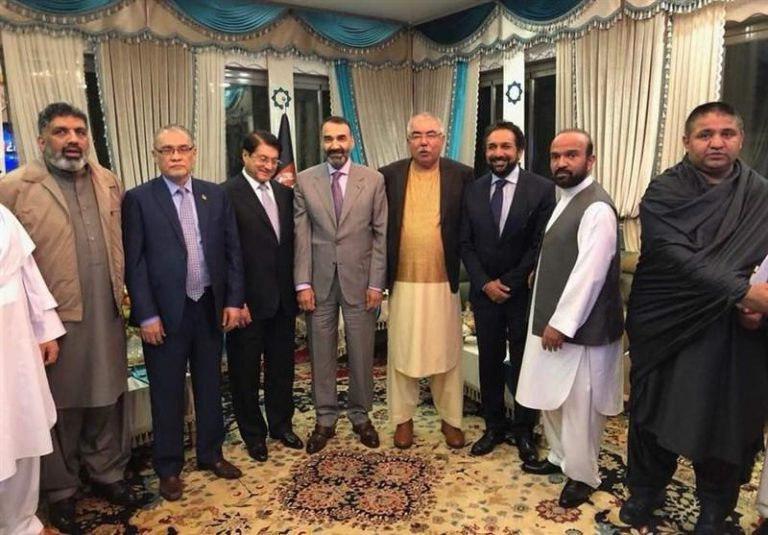Through a charter:
Council of Resistance Stressed on Setting up Non-centralized Islamic Republic Parliamentary System
The National Council of Resistance announced its charter in six chapters and 71 articles, addressing issues of reconciliation, political system, economy, foreign policy, armed forces, constitution, human rights, freedom of expression, election, and women rights.

The charter of the National High Council for Resistance of the Islamic Republic of Afghanistan was published through a virtual meeting on 15 August 2022 which was drafted by political leaders, women activists, political parties, civil activists, members of the former parliament and some officials of the former government.
The introduction of this charter has a brief overview of the developments in the country in the past one year and demands from the international community and the United Nations to improve the living conditions of the people of Afghanistan. The first chapter explains general provisions and rulings, as well as the names and titles of the leadership council, the supreme council, and the committees.
In the second chapter, the Council of Resistance focused on the necessity of unity and unification of political campaigns, the necessity of forming regular armed forces to maintain the territorial integrity and national sovereignty of the country as well as highlighting the mistakes of the previous government and the system.
The third chapter, however, discussed the establishment of a non-centralized Islamic Republic Parliamentary System.
Article 15 of the charter stresses on consolidating a non-centralized Islamic Republic parliamentary system in which:
- The Republic and Islamic democracy can better crystalize in the form of a parliamentary system and contribute to the flourishing of strong parties, independence of the judiciary, rule of law, ensuring fundamental rights of citizens, safeguarding human life and freedom of expression, and be more effective in making the government responsive and leaders and administrators responsible;
- A parliamentary system that is based on fair elections in a way that all ethnic groups residing in Afghanistan’s provinces have balanced representation proportionate to their population;
- In addition to central government and municipal authorities, provincial and district governors are elected.
Article 21 states that it is necessary to revise the country’s administrative units/divisions based on the successful experiences of countries in the region and the world at large and based on the geographical, economic, and cultural realities of our dear homeland.
Article 23 and 24 emphasize the need to fight extremism, terrorism, and defending national interests.
Article 26 referred to the role of religious scholars in explaining religious teachings and removing the tarnish of prejudice, deviation and extremism. Article 27 supports the active participation of women in all areas such as education, higher education, work, economic, political, social and cultural activities.
Meanwhile, articles 31 and 32 of this charter deal with the two key categories of economic policy and foreign policy, and in both cases, neutrality is considered as the basis.
“For the purpose of balanced and sustainable development, modernizing agriculture, alleviating poverty, creating jobs, and ensuring self-reliance with a productive economic approach, an economic system will be adopted that will provide a social safety net which prevents the deepening of the divide between poverty and wealth;” reads the article.
“An economy-driven policy will be pursued in foreign relations based on the priorities of Afghanistan as a landlocked country with rich natural resources that rely on regional and international cooperation in the fields of agriculture and livestock, trade and transit, excavation of mines, tapping of energy resources, human resources and the potential of Afghanistan’s geo-economic location;” reads article 32 on foreign policy.
Priorities of the National Resistance Council for the Salvation of Afghanistan
Chapter four of the charter priorities negotiations for peace and establishing an inclusive transitional government and elected system and government.
“Efforts to establish lasting peace and ensure political stability of the country are the top priority of the Council of Resistance; the Council of Resistance prefers negotiation with the Taliban as a way out of the current dire situation of the country, as well as the formation of an inclusive transitional government to pave the way for the establishment of a popularly elected system and government, and all its members welcome in a united and coordinated fashion any opportunity that can contribute to achieving national reconciliation through genuine dialogue among various groups of the people of Afghanistan,” reads article 33 of the charter.
Articles 34 and 35 of this charter, however, emphasize that if the Taliban do not comply with the establishment of an inclusive transitional government and elected system, they will look for alternative ways. It has also been accentuated that they defend the resistance against the Taliban and consider their fights as legitimate.
It is worth mentioning that the National Resistance Front (NRF) led by Ahmad Massoud had also published the principle lines of the front, but the Taliban rule neither reacted to principle lines of the NRF nor this charter so far.


